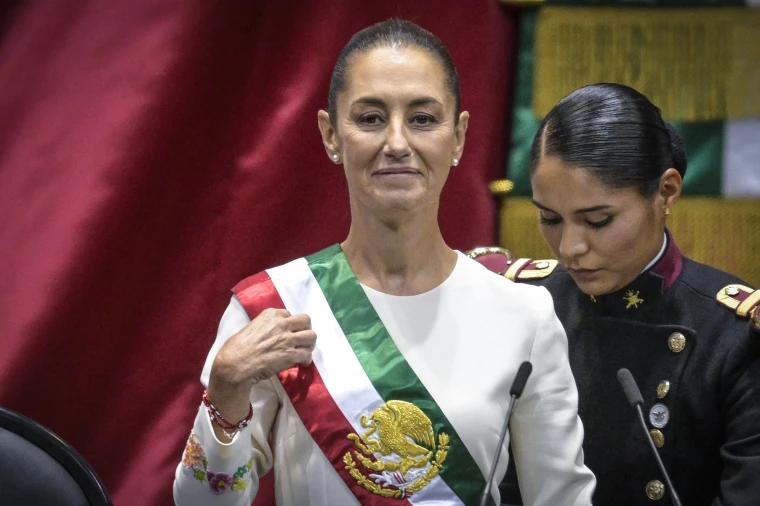Claudia Sheinbaum made history as she was officially sworn in as the first female president of Mexico. Her election represents a landmark moment for the country, breaking centuries of male-dominated leadership and providing a fresh perspective in Mexican politics. Sheinbaum, a key figure in the MORENA party, rose to national prominence as the former mayor of Mexico City, where she earned a reputation for progressive policies focused on social justice, environmental sustainability, and urban development.
Her inauguration is seen as the culmination of years of dedication to public service and advocacy. A trained physicist with a doctorate in environmental engineering, Sheinbaum has often emphasized science-based solutions in addressing Mexico’s pressing issues. Her background has shaped much of her political agenda, particularly her approach to climate change, sustainable urban planning, and technological innovation. She is expected to continue prioritizing these areas during her presidency.
Sheinbaum’s election marks a significant departure from the traditional political establishment in Mexico, where the presidency has long been held by men representing conservative or centrist views. Her victory is seen as part of a broader trend in Latin America, where left-wing governments have gained ground in recent years. The MORENA party, founded by outgoing president Andrés Manuel López Obrador (AMLO), has enjoyed widespread support due to its focus on reducing inequality, tackling corruption, and promoting social programs for the working class. As one of AMLO’s closest allies, Sheinbaum is expected to continue many of his policies, though she is likely to bring her unique style and priorities to the office.
Her campaign emphasized her vision for a more inclusive Mexico, where economic and social opportunities are accessible to all citizens, especially the country’s most vulnerable populations. She has vowed to address gender inequality, improve access to education, and continue efforts to reduce poverty. These goals are central to her political philosophy, and her administration is likely to focus on expanding welfare programs, increasing investments in public health, and ensuring equal rights for all Mexicans.
While Sheinbaum’s presidency is seen as a step forward for gender representation in politics, it also comes with its challenges. Mexico faces deep-rooted problems, including corruption, cartel violence, and economic disparities. The new president will have to navigate these issues while implementing her ambitious agenda. Additionally, Sheinbaum is entering office at a time when the global economy is in flux, and Mexico’s economic recovery from the COVID-19 pandemic remains fragile.
Despite these challenges, Sheinbaum’s presidency represents a moment of hope for many, particularly women and marginalized communities in Mexico. Her election is viewed as a victory for gender equality, with the potential to inspire future generations of women leaders in the country and beyond. The symbolism of her inauguration extends beyond Mexico’s borders, as Sheinbaum joins the ranks of other female heads of state in Latin America, such as Argentina’s Cristina Fernández de Kirchner and Brazil’s Dilma Rousseff.
Supporters of Sheinbaum are optimistic that her leadership will bring meaningful change to Mexico, particularly in areas like climate policy, where she has already made a name for herself. As mayor of Mexico City, she implemented measures to reduce carbon emissions, increase renewable energy use, and improve public transportation. These achievements have earned her international recognition and are expected to serve as a foundation for her national environmental policies.
Critics, however, argue that Sheinbaum’s close ties to AMLO could make it difficult for her to assert her independence as president. Some worry that she may continue AMLO’s populist approach, which has at times been criticized for undermining democratic institutions and checks on executive power. Nonetheless, Sheinbaum’s supporters contend that her scientific background and pragmatic approach to problem-solving will distinguish her from her predecessor and enable her to forge a path that is uniquely her own.
As Claudia Sheinbaum takes office as Mexico’s first woman president, the country looks ahead to a new chapter in its political history. Her presidency is a significant milestone for women’s representation in Latin American politics, and it holds the promise of progressive reforms aimed at tackling inequality and fostering a more sustainable future for all Mexicans.





